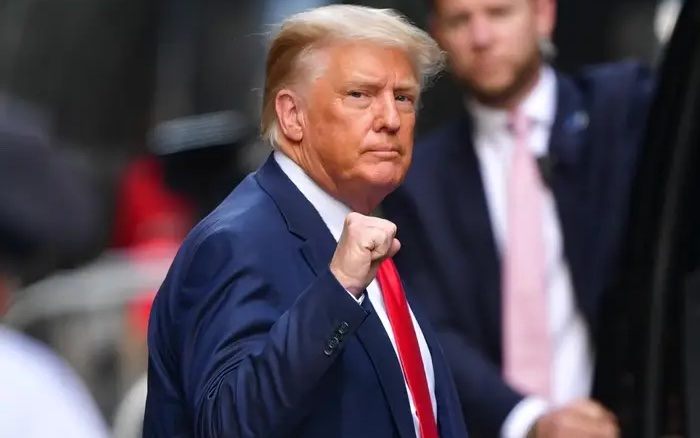
Trump Receives Limited Immunity From Prosecution From Supreme Court, Which Could Postpone Election-Related Trial
According to a ruling by the US Supreme Court, former President Trump has limited immunity from prosecution for actions taken while in office.
The trial against former President Donald J. Trump’s alleged attempts to rig the 2020 election is expected to be postponed after the Supreme Court decided on Monday that Trump is entitled to some protection from prosecution.
The court’s ruling, which was rendered in a 6-3 split along political lines, has important ramifications for the separation of powers and the previous presidents’ legal liability.
In his majority opinion, Chief Justice John G. Roberts Jr. emphasized that although the president is subject to the law, Congress cannot make the president’s actions while carrying out his or her constitutional duties illegal.
Roberts stated, “The president is not above the law.” However, the president’s actions in discharging his or her executive branch duties cannot be made illegal by Congress. Furthermore, an active, independent executive has always been required by the Framers’ structure of divided powers. Thus, the president is entitled, at the very least, to presumptive immunity from prosecution for all of his official activities and may not be charged for using his fundamental constitutional powers.
Justice Sonia Sotomayor contended in her dissent that the ruling goes against a fundamental tenet of the Constitution. She remarked, “Today’s decision to grant criminal immunity to former presidents reshapes the institution of the presidency.” “It belittles the fundamental tenet of our Constitution and governmental structure, which states that no individual is above the law.”
The case was remitted to the lower courts by the Supreme Court, which made a distinction between official and private behavior. The trial’s timeline may be affected by this remand, but it currently appears doubtful that it will start before the next election. In the event that Trump wins, he might order the Justice Department to drop the accusations.
Based on the division of powers and a 1982 Supreme Court decision that granted such immunity in civil cases for activities inside the “outer perimeter” of presidential responsibilities, Trump has claimed absolute immunity. This claim has been rejected by lower courts.
“Whatever immunities a sitting president may enjoy, the United States has only one chief executive at a time, and that position does not confer a lifetime ‘get out of jail free’ pass,” said Federal District Court Judge Tanya S. Chutkan.
“Former President Trump has become citizen Trump, with all of the defenses of any other criminal defendant,” the unanimous U.S. Court of Appeals for the District of Columbia Circuit panel noted in their concurrence.
The scope of a president’s immunity from criminal prosecution for acts taken while in office will be discussed by the Supreme Court. Two further cases pertaining to the attack on the Capitol on January 6 were heard by the court this term.
The court held unanimously in March that states could not bar Trump from running for president using Section 3 of the 14th Amendment. On Friday, the court determined that federal prosecutors had improperly used an obstruction statute to prosecute a few January 6 rioters.
While Trump’s ballot eligibility lawsuit has been resolved quickly, the immunity case has moved more slowly. The court first rejected Special Counsel Jack Smith’s request that the justices quickly review Trump’s claims of immunity. The Supreme Court decided to hear Trump’s case after the appeals court decided against him, which resulted in the decision on Monday.
Conservative justices made it clear during oral arguments that they would rather rule broadly on presidential power than go into detail about the details of the accusations against Trump. Justice Neil M. Gorsuch said, “We’re writing a rule for the ages.”
All Categories
Recent Posts
Tags
+13162306000
zoneyetu@yahoo.com



